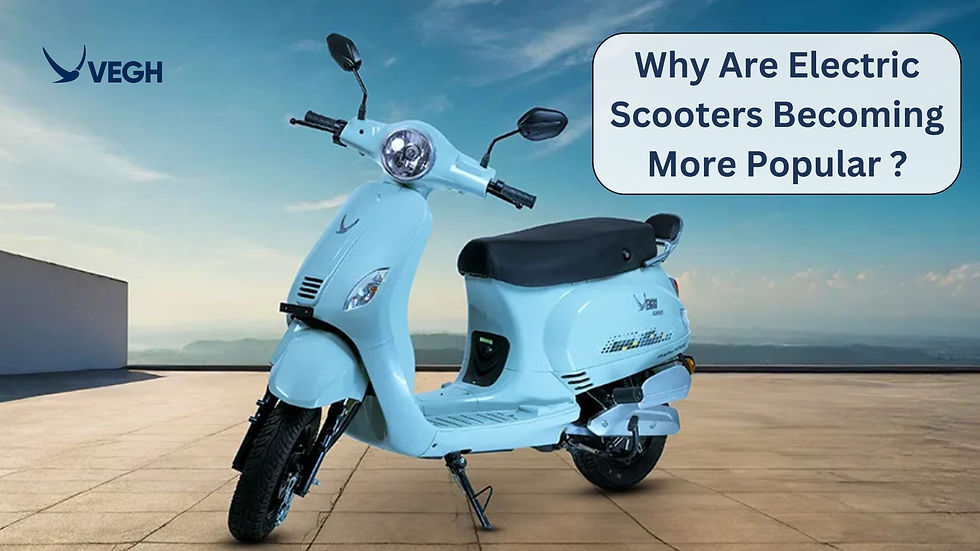RTO Rules & Regulations for Electric 2-Wheelers in India
- veghautomobiles
- Apr 16, 2024
- 2 min read

As the demand for eco-friendly transportation surges, electric two-wheelers are gaining popularity across India. However, before you embark on your journey with the best electric scooter in India, it's essential to understand the rules and regulations set forth by the Regional Transport Office (RTO). From registration to licensing, here's a comprehensive guide to navigating the legal landscape for e scooters in India.
Registration Process for Electric Scooters
Before hitting the streets, all electric two-wheelers must undergo registration with the RTO. This process involves submitting necessary documents such as proof of identity, address, and vehicle specifications to obtain a unique registration number. Additionally, it's crucial to ensure that the electric scooter showroom near me provides RTO-compliant vehicles for hassle-free registration.
Licensing Requirements
While riding low-speed electric scooters (with a maximum speed of 25 km/h), a driver's license is not mandatory. However, for higher-speed variants, riders must possess a valid driving license issued by the RTO. Before purchasing an electric scooter, it's advisable to check local regulations regarding licensing requirements to avoid any legal complications.
Safety Standards and Compliance
To ensure the safety of riders and pedestrians, electric two-wheelers must adhere to prescribed safety standards set by the RTO. These standards encompass aspects such as braking efficiency, lighting, and emission levels. When selecting an electric scooter, opt for models that meet or exceed these standards to guarantee a safe and reliable riding experience.
Insurance Coverage
Similar to conventional vehicles, electric scooters in India are subject to insurance requirements mandated by the RTO. Third-party insurance coverage is mandatory for all registered vehicles to provide financial protection against potential accidents or liabilities. Before purchasing an electric scooter, inquire about insurance options available at the electric scooter showroom near me to fulfill regulatory obligations.
Road Tax and Fees
Owners of electric two-wheelers are liable to pay road tax as per the RTO regulations. The amount of road tax varies depending on factors such as vehicle type, engine capacity, and location. Additionally, certain administrative fees may apply during the registration process. It's advisable to consult with the RTO or a licensed dealer for accurate information regarding road tax and associated fees.
Conclusion
Navigating the RTO rules and regulations for electric two-wheelers in India is crucial for ensuring compliance and enjoying a seamless riding experience. By understanding the registration process, licensing requirements, safety standards, insurance coverage, and associated fees, riders can stay on the right side of the law while embracing sustainable mobility solutions. Remember to conduct thorough research and seek guidance from reputable sources such as authorized dealerships and government agencies to make informed decisions regarding your electric scooter purchase.







Comments